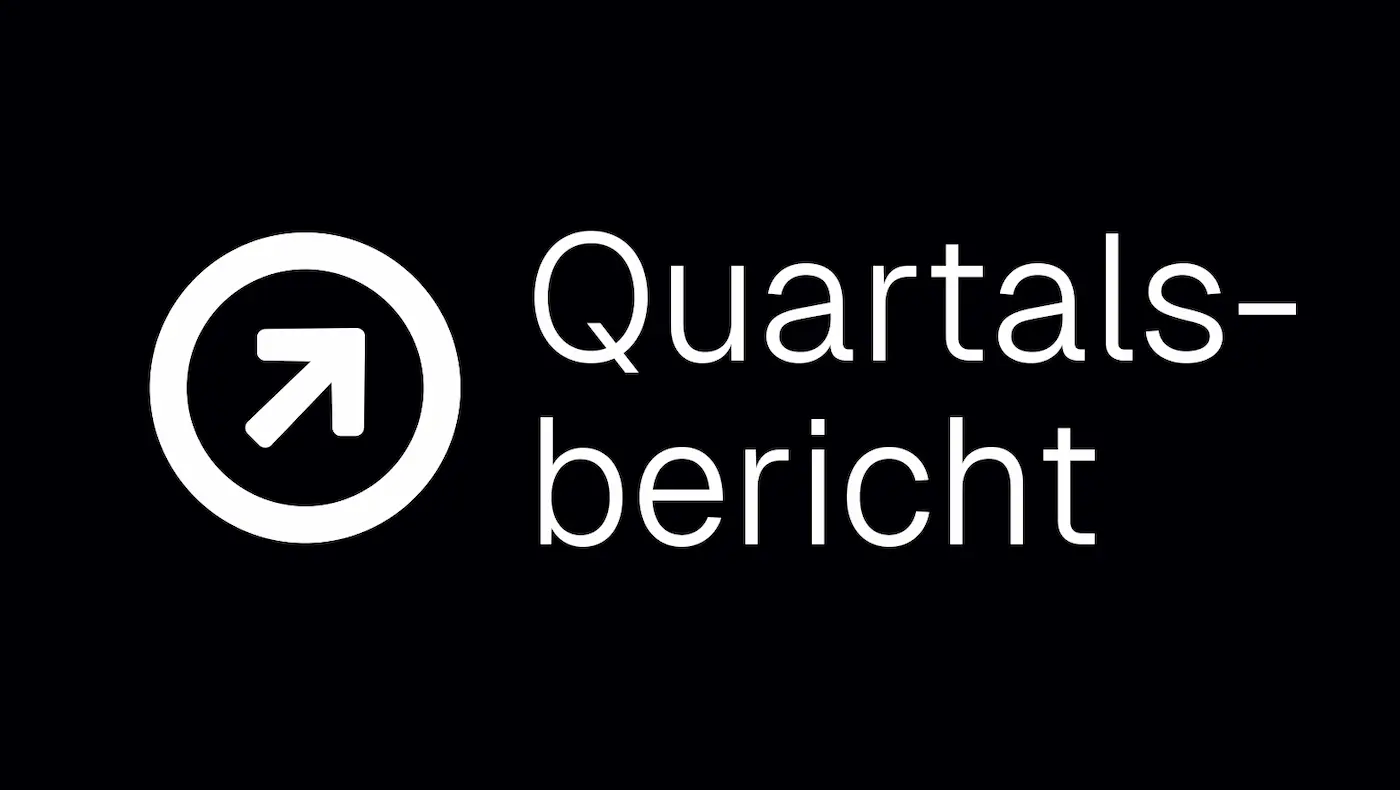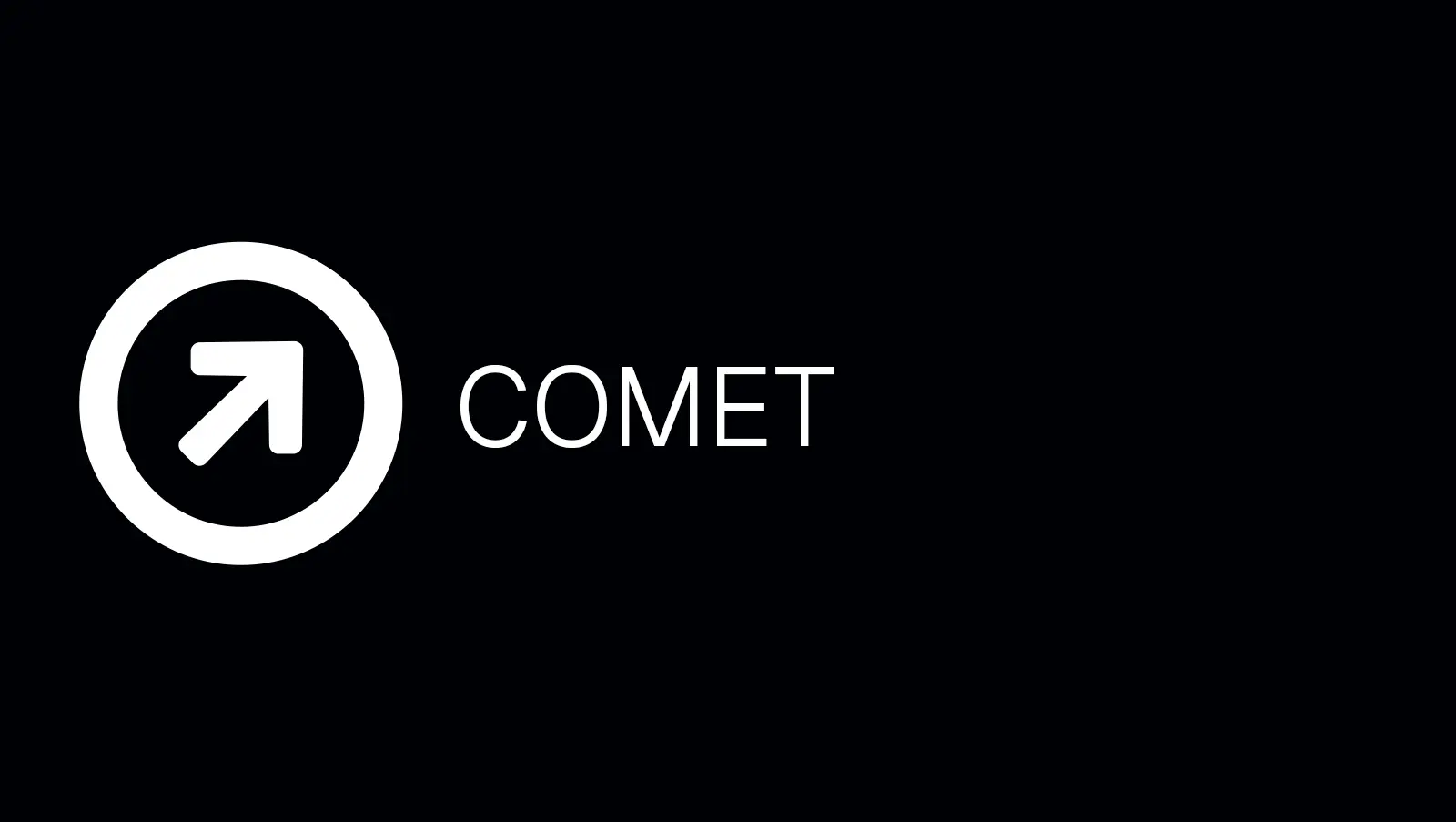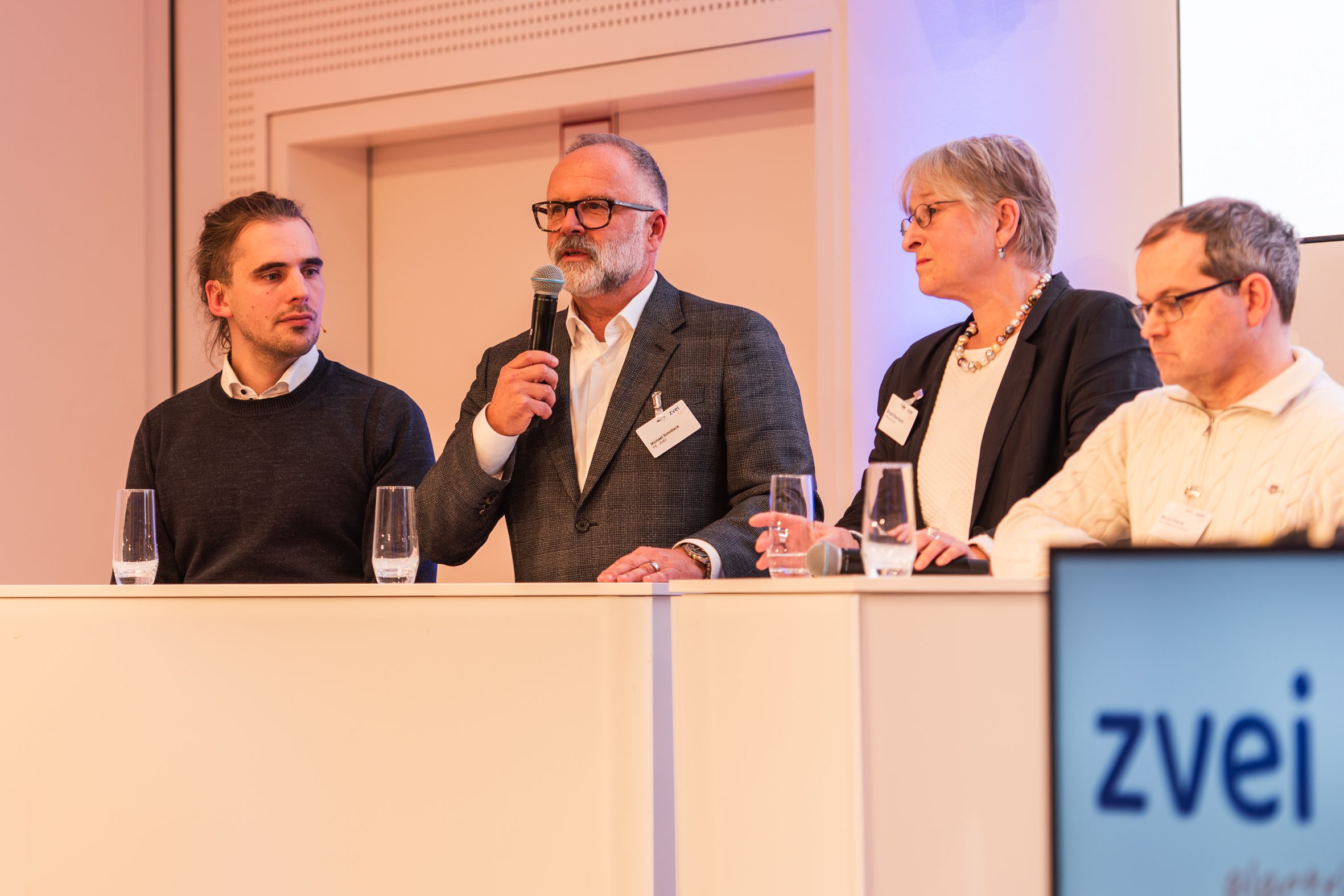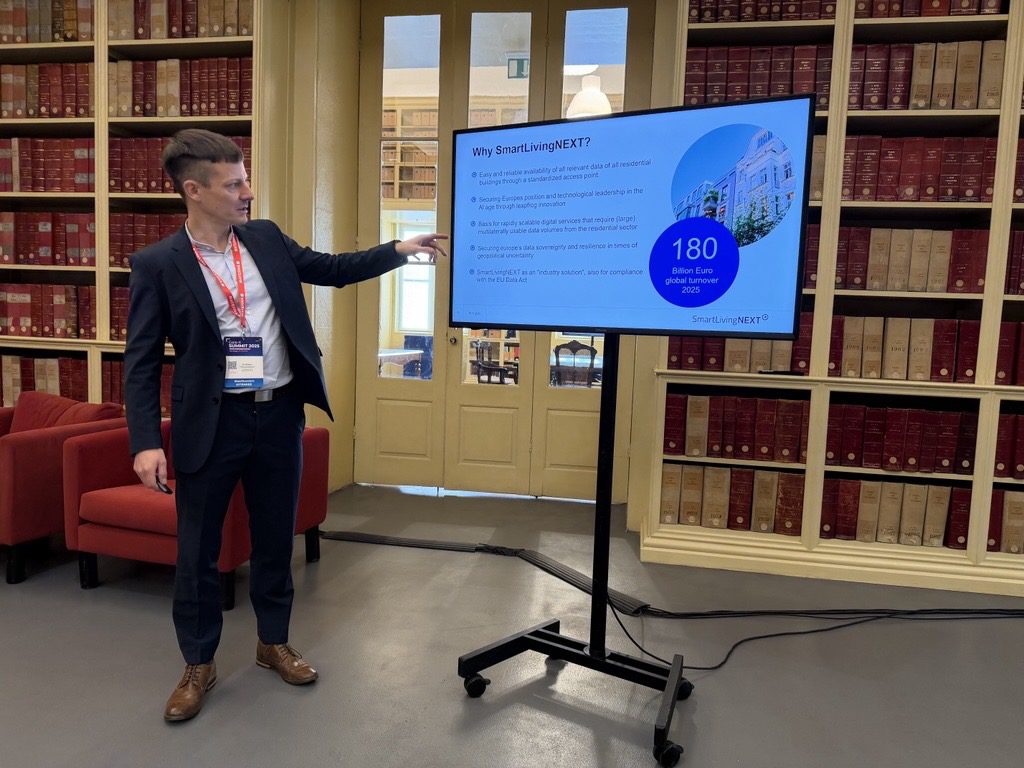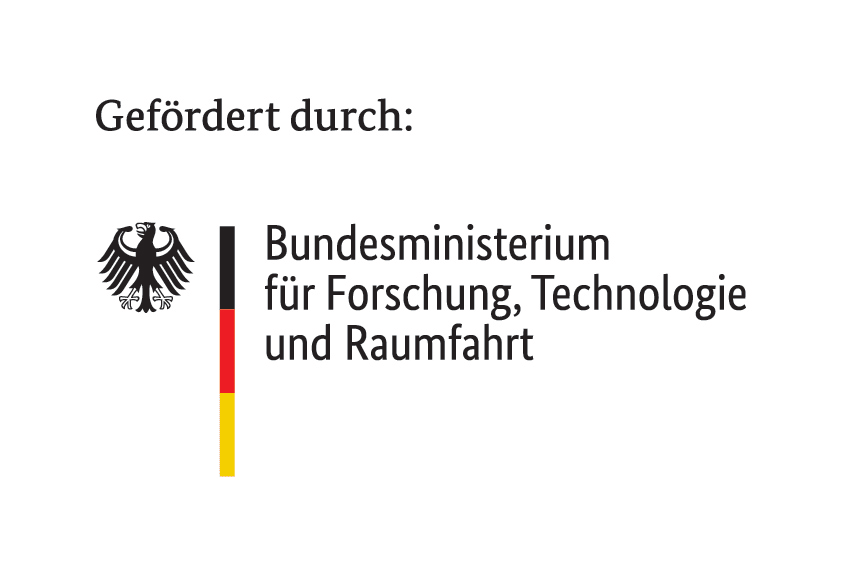SmartLivingNEXT at the 2nd ZVEI Digital Conference
27. November 2024
7 minutes
Digital transformation and automation are the focus of industry today more than ever. Artificial intelligence (AI), data spaces, cybersecurity and the Digital Product Passport (DPP) as well as their regulation form the cornerstones of a networked and future-oriented value chain. These megatopics were the focus of the 2nd ZVEI Digital Conference. SmartLivingNEXT presented its technology approach for networked, intelligent residential buildings to an interested specialist audience.
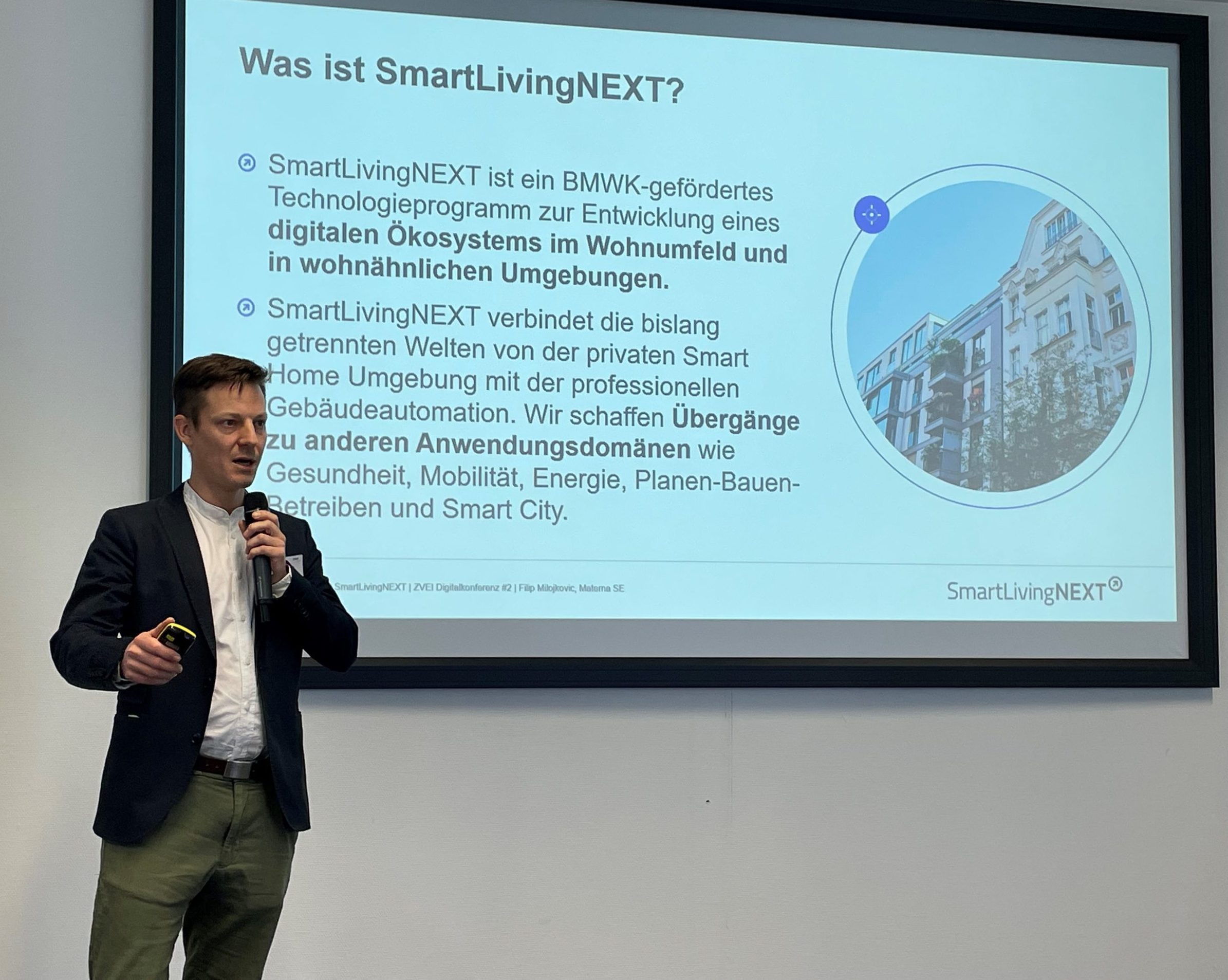
On 25 November 2024, the 2nd ZVEI Digital Conference in Frankfurt am Main was the central meeting point for organizations, companies and players in the electrical and digital industry. The all-day hybrid event in Frankfurt am Main was opened by Gunther Koschnik, Head of Industry at ZVEI e. V., who emphasized the increasing importance of digital transformation and automation for the industry and its competitiveness in front of more than 150 participants.
Filip Milojkovic, Materna, presented the research project and the associated potential of intelligent smart living services for future residential and living environments in his role as sub-project manager and consortium partner of the SmartLivingNEXT flagship project. Milojkovic initially addressed the flexibilization and dynamization of the energy supply in relation to grid fees and electricity prices and emphasized the need for change with digital solutions as a guide, such as an energy management app for saving electricity.
SmartLivingNEXT achieves all set milestones
He then explained the milestones achieved so far in the research project. For example, an executable compute environment forms the technical backbone of the project. In addition, a technical onboarding process has already been developed and implemented, making it easier for partners and stakeholders to integrate seamlessly into the ecosystem and use data streams effectively. The successful rollout of the Dataspace Blueprint has created a central standard that provides the basis for the smooth, interoperable exchange of data. Milojkovic: “Another important milestone is the integration of real properties. By integrating real buildings and their infrastructure, the data flow from the sensor to the analysis level was ensured.”
The core element of the technological concept is a shared data room that allows digital smart living applications to be developed and operated more easily and cost-effectively than before: “This is particularly due to the fact that the data room creates a uniform access point to all building-relevant data for the first time. This will enable the housing industry, software developers, tradespeople and private users to connect digitally.”
They are then able to receive authorized data that is required for their respective application. This allows different systems and the data they generate, such as energy consumption, appliance or other sensor data, to be combined in new ways and also used in anonymized form to train corresponding AI-based applications. This makes many new applications conceivable, for example in the areas of energy monitoring, assistance and care, home security or housing management and building maintenance.
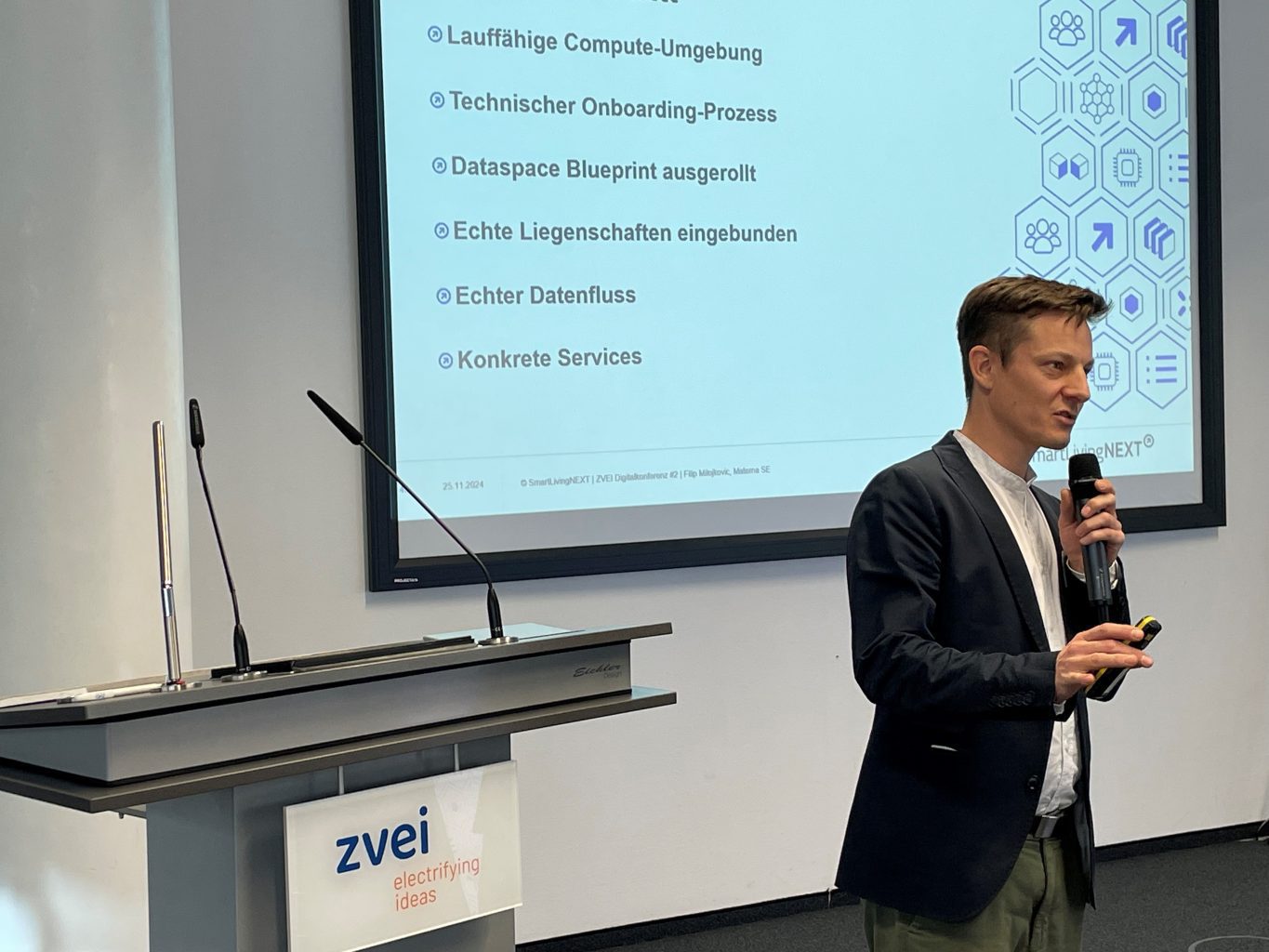
The central solution approaches of SmartLivingNEXT will focus on social challenges such as climate neutrality, digitalization and demographic change, Milojkovic continued. The focus here would be on the following key areas:
- The building as an active participant in the electricity grid:
The electrification of heating and mobility and the flexibilization of load profiles are turning buildings into active participants in the electricity grid. These measures are essential in order to achieve climate neutrality.
- Living at home:
In view of the shortage of skilled workers and increasing life expectancy, the focus is on enabling older people to live safely and confidently within their own four walls. Digital technologies and smart home solutions are helping to make everyday life easier.
- Networking in the living environment:
A digital ecosystem enables data to be used across manufacturers and sectors. The interface to the national access point and an IoT backend based on Gaia-X standards guarantee secure and efficient data availability and use.
“With our approaches, we not only offer companies the opportunity to meet the legal requirements of the EU Data Act, but also to achieve economic benefits by optimizing their processes and developing new business models.”
Advancing digitalization together
Overall, the conference offered a number of exciting insights into key topics of digital transformation. Svenja Falk, Managing Director Accenture Research Europe & Board Member, Sicco Lehmann-Brauns, Head of Digital Policy Germany at Siemens, and Dominik Ruechardt, Senior Director Customer Strategy Office at Parametric Technology Corporation (PTC), discussed the importance of the data economy as a foundation for innovations in the areas of artificial intelligence (AI) and cyber security.
The presentations on projects such as DataSpace for Everybody and Factory X were particularly practice-oriented, impressively demonstrating how the theoretical concepts of data spaces can be implemented in concrete applications. Another focus was on the discussion of topics such as the AI Act, NIS2 and CRA. The focus here was on how companies can successfully master the new regulatory requirements and at the same time recognize opportunities in them.
At the end of the conference, Dr Angelina Marko, Managing Director of the ZVEI Digital Ecosystems & Smart Services (DEES) platform, underlined the importance of ZVEI’s activities in this forward-looking area: “Digitalization is not only a technological challenge, but also offers enormous opportunities to develop innovative business models, operate more sustainably and strengthen Europe in global competition. With the DESS platform, we offer companies pragmatic and practical support for the digital transformation. Our forums not only provide access to valuable specialist knowledge, but above all offer space for the direct exchange of experience and the development of concrete solutions. By working closely with our members, we can identify market trends at an early stage and support companies in exploiting them profitably. The DESS platform is intended to be a place where theory is put into practice.”
In addition to the technical presentations, the event offered numerous opportunities for networking, which were used intensively by the participants.
Listen to the article (in German)
Editorial office:
Ilka
Klein
Category:
Flagship project
Copyright information
Maximilian Metzner
